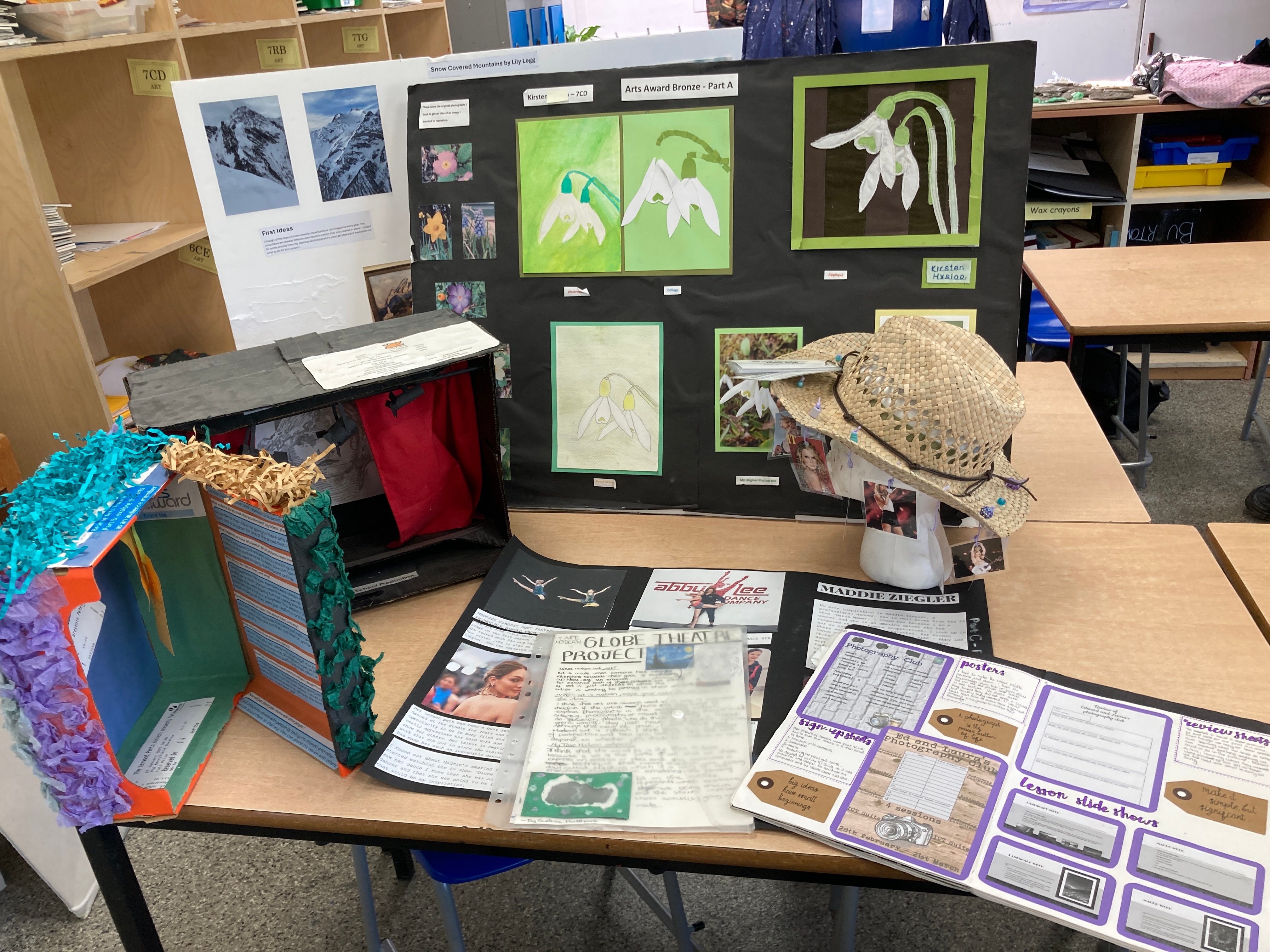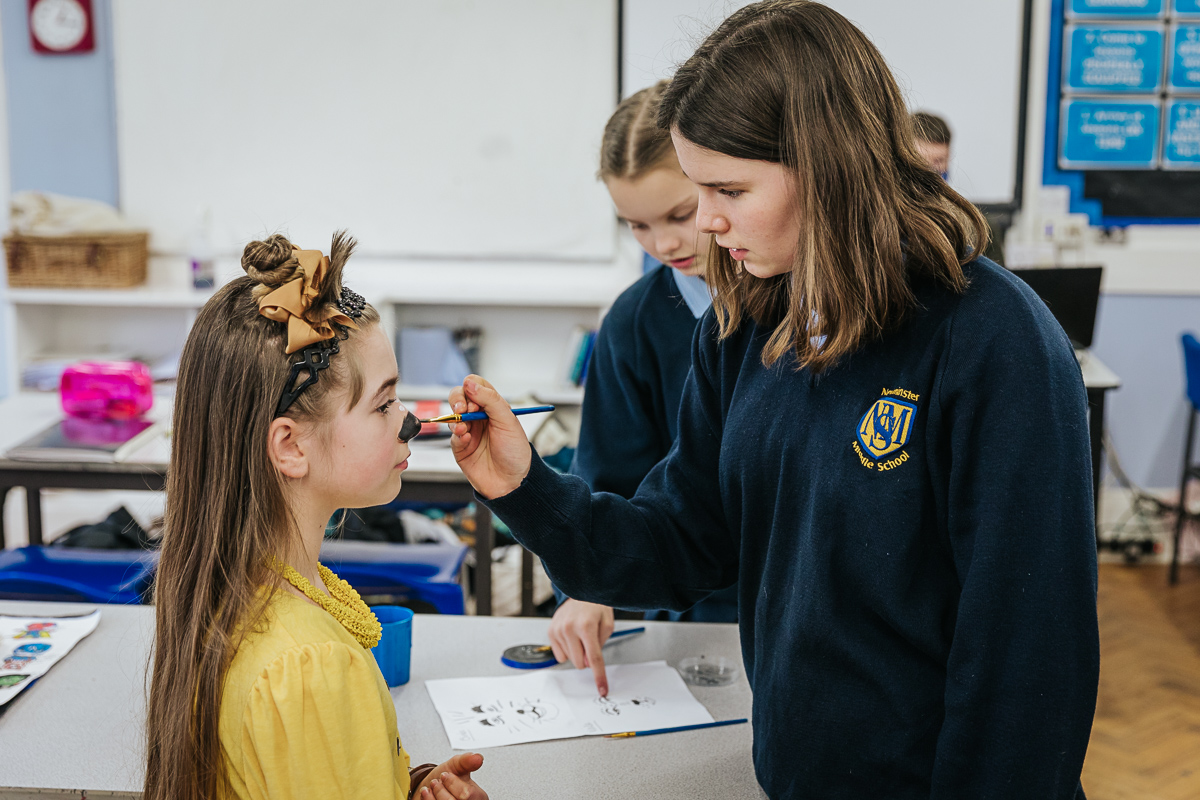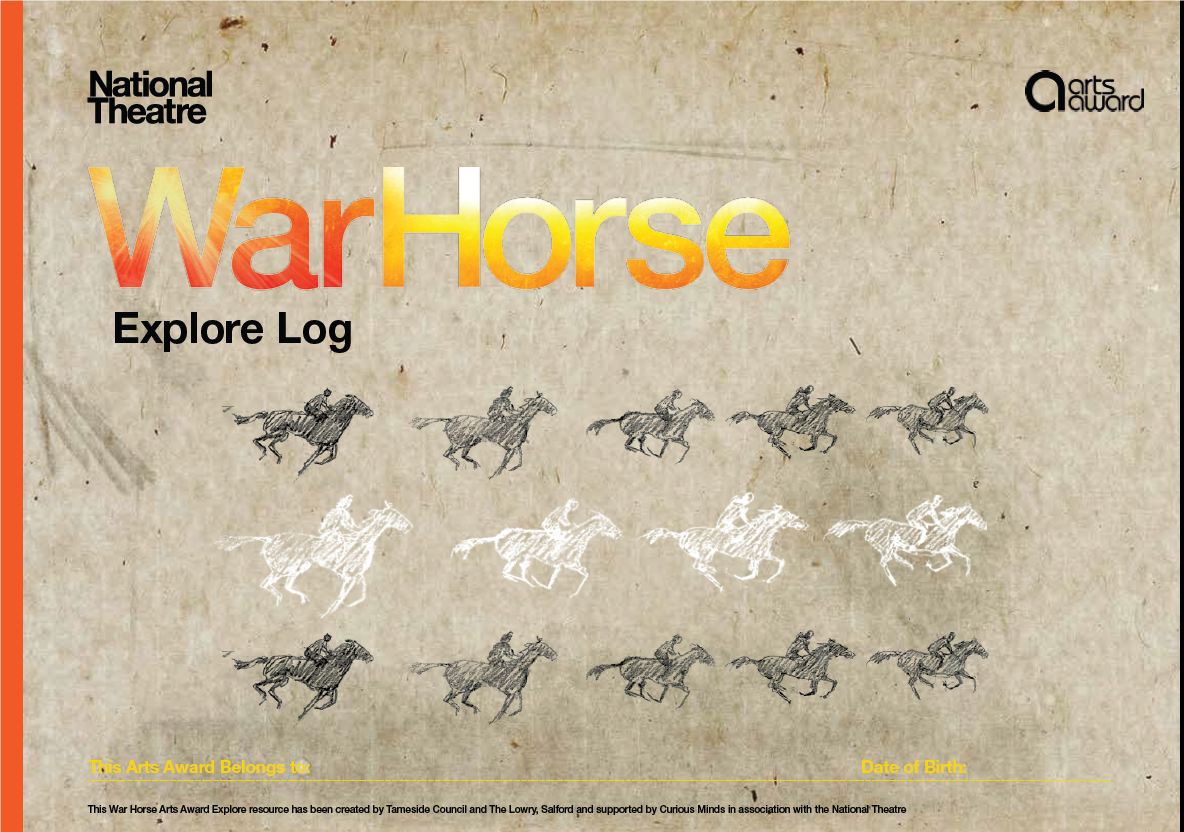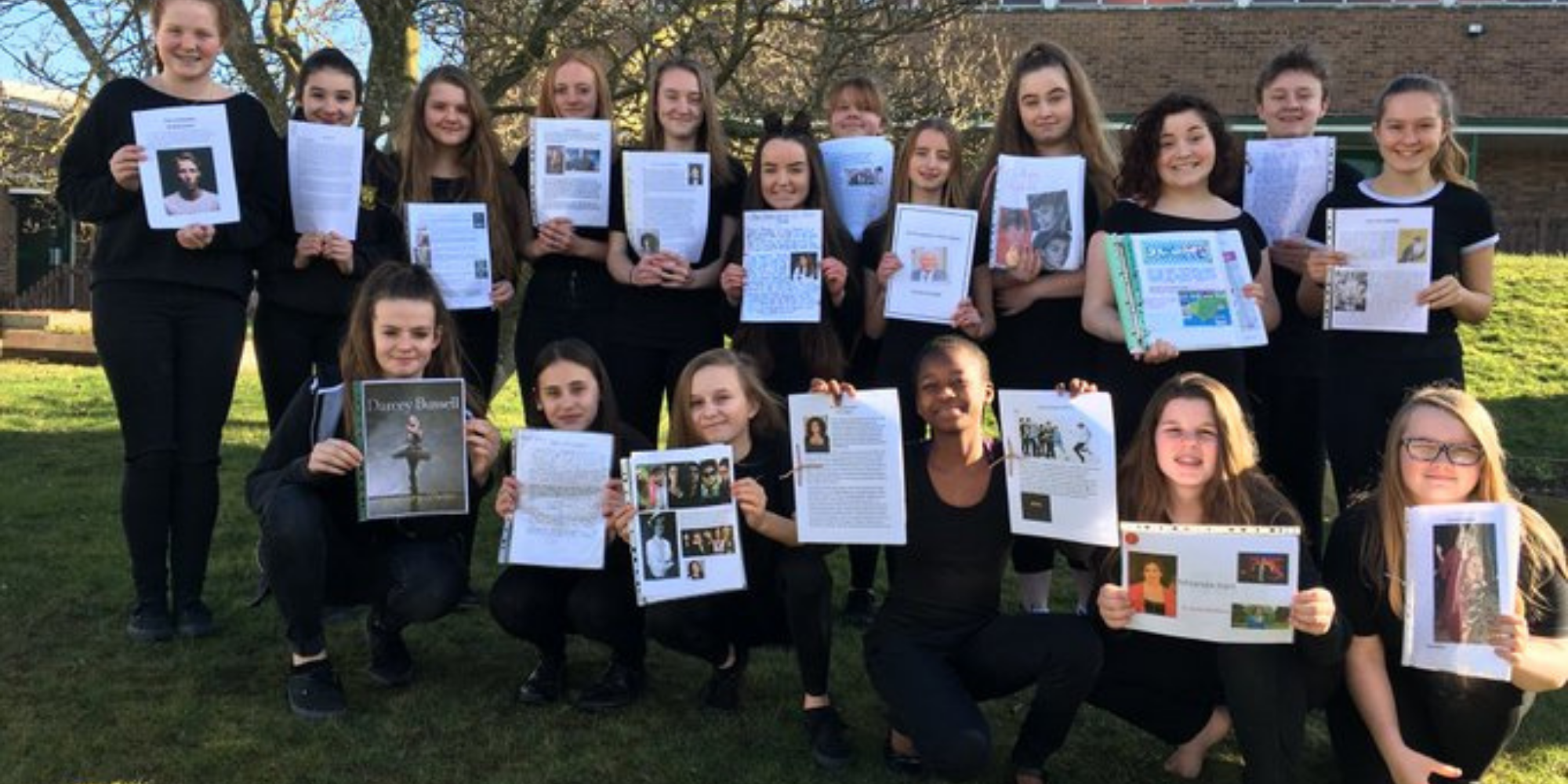
The joy of ordinary and extraordinary moments while delivering Arts Award
BY: Guest Writer
29 Apr 2025
On the blog this week, Claire Everett, Art Leader at Cranborne Middle School in Dorset tells us about all the special moments you can experience as an Arts Award adviser and the legacy that Arts Award has had in her school.
Going back through my enrolment spreadsheets and seeing the names of the 675 young people who I helped achieve an Arts Award at Cranborne over the last 14 years brings back so many memories. I can remember most of the projects - that’s how much of a positive impact Arts Award has had on my career!
Legacy
As I look back on my own journey as an Arts Award adviser, the legacy of Arts Award is found in the small moments, which have actually ended up being the big moments. Some happen by accident, but most happen because of the deep working relationships I build with the young people and the partnerships I have with parents and carers.
As an example of a small moment that became big, just a few weeks ago, a Year 7 Arts Award Bronze participant came to me as she was upset and overwhelmed. After a chat she went away smiling and laughing at the sheer pleasure of realising an idea she had for presenting one part of her Award.
Arts Award has also strengthened the profile of arts in the school, has been pivotal for our school achieving Artsmark Gold twice, and has transformed our extra-curricular offer.
I started at Cranborne Middle School in 2004. I took on the role of Head of Art and was trying to put my stamp on a department that had been led by a wonderful teacher for the past 18 years. Having trained to teach at Secondary level, I missed the structure and external validation of a nationally recognised qualification. You can read my previous blog post about how I discovered Arts Award.
Celebration
During every school assembly at the end of the year, I ask all pupils who have undertaken Arts Award to stand up. We applaud them and the whole school gets to see the genuine pride on their faces. We also host a celebration evening where parents, carers, friends and wider family are invited to view an exhibition of all Arts Award portfolios while enjoying refreshments provided by our Parent Teacher Association (PTA). I chatted with them informally and then saw their pride as their child gets up on stage and receives their certificate.
Coaching
During my time delivering Arts Award at the school, I’ve had conversations with young people who wanted to stop working towards their Arts Award, persuading them that they can do it and that I believe in them, even when they felt they couldn’t go on. They borrowed my belief, and we made a plan together.
This sometimes involved calling parents (with the young person’s knowledge) to advise them on how to support their child and, in so doing, ensured that they could help their child complete their Award on time.
There were honest conversations with a Year 7 Bronze achiever whose parents wanted them to undertake Silver the following year, but they had many other extra-curricular commitments at that point. I assured them that they could undertake their Silver and/or Gold at any point up until the age of 25. They walked away reassured.
Countless brief chats with young people have been held in their Arts Award sessions, guiding them on choosing an arts challenge or inspiring them on a creative way to present different parts of the Award.
Mutual interest
I realised year on-year during my after-school club that it’s actually pretty easy to create a positive vibe in a room full of Year 7 or 8 pupils who would not normally choose to spend an hour together. Their interest in the arts united them and Arts Award gave them all a common goal. Instead of a teacher delivering a theme or unit, they explored and challenged themselves in artforms of their own choosing. 4pm biscuits helped!
Young people taking ownership
There were times where I would take a breath in a busy Arts Award session and observe the myriad of artforms in one room. I could see anything from clay work in one corner, to someone playing a keyboard with headphones in another, a group presenting their portfolios while laughing with another cutting out a pattern for a dress they’ve designed. It has always been important for me that each young person takes ownership of their own arts challenge. They are there by choice and their challenges should also be their own.
I love delivering the annual Arts Award assembly to Year 7: much anticipated by some and met with curiosity by most. With Arts Award being the only qualification we offer at the school, I strive to strike a balance between inclusivity and still keeping the profile of achieving an Arts Award high, while not scaring off young people who could be interested in participating.
Flexibility
The beauty of Arts Award is that the assessment framework for each level has remained consistent over the years. It simply works for all ages and abilities and can be differentiated for the learning needs of any young person.
Our current offer works for our school and young people. Since Arts Award moved to the new quality assurance process (External Quality Assurance) it has given me more flexibility and has meant that I can run an additional group this year, due to the streamlining of the assessment process and not being selected for moderation every time you enter young people for Arts Award.
The small moments are all essentially the same; borne of planning and regular check ins with encouragement and passion to help maintain engagement.
Image: Bronze Arts Award portfolios, Cranborne Middle School
Related posts
BY: Alan Lynch




Comments & Replies